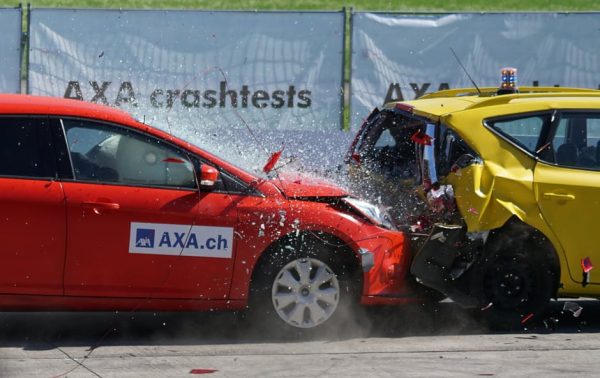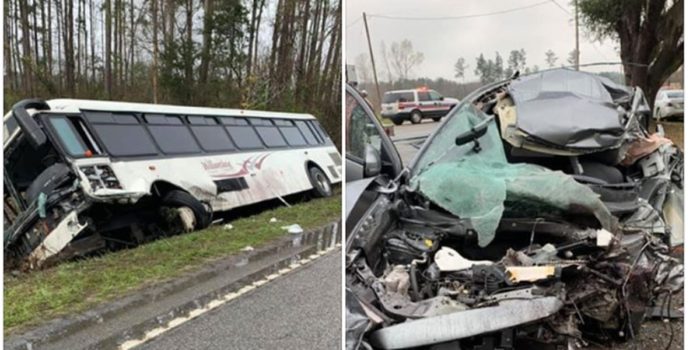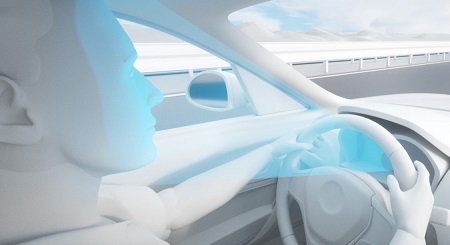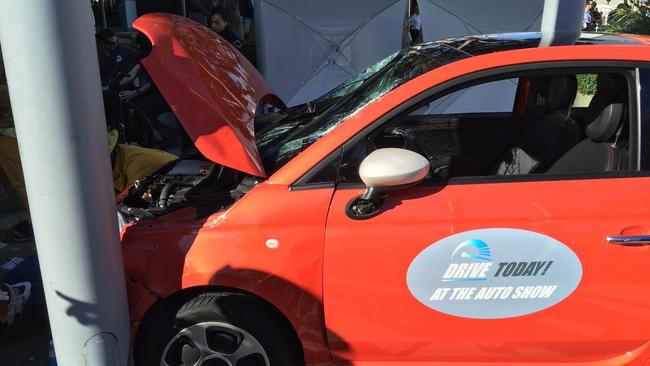Now Reading: The Cautious Driver’s Handbook on Dealing With Car Collisions
-
01
The Cautious Driver’s Handbook on Dealing With Car Collisions
The Cautious Driver’s Handbook on Dealing With Car Collisions

Our parents and driving instructors will teach us about all the bad habits of driving and how to avoid them, but did you know that the majority of vehicle collisions aren’t caused by the cautious driver, but by other reckless drivers? It doesn’t matter how safely you drive or how well you can avoid danger—there are times when you simply can’t avoid other dangerous drivers.
What you can do, however, is prepare for that situation. To guide you on the exact steps you need to take, here’s a handbook on how to deal with collisions. To help you memorize these points, read through the article carefully or take the time to print it off a keep a copy in your car. Alternatively, save this page to your phone so that you have access to it at any time.

- Deep breaths
Depending on how violent the crash was, you might be knocked unconscious for a brief amount of time or experience a rush of adrenaline and stress. Clear your mind and take a moment to breathe deeply. It will help to clear your mind of conflicting and distressing emotions.
- Check your passengers
Call out to whoever you’re travelling with. Ensure they are conscious and ask them to tell you about their situation if you can’t physically turn around to look. If there’s no response, then take another deep breath before you exit the vehicle. If you can’t, then do your best to give yourself some space. Take off your seat belt, push away the air bags and try to help injured people in your car. If you have a first aid kit, then bring it out and give assistance to whoever needs it.

- Contact emergency services
First, contact medical services and call for an ambulance. If your first aid kit still has supplies, then distribute them to the injured parties. If you don’t, then try to borrow bandages, disinfectant and other medical supplies from someone else. If you notice one of the offending cars in the crash speeding off, then you’ll need to contact the local authorities as well.
- Stay at the scene, but find a place to rest
Once you have secured the safety of you, your passengers and the involved parties, take a moment on the side of the road and find a place to rest while you wait for emergency services to arrive. This is a good time to collect your thoughts. Once you feel up to it, exchange information from other involved parties such as license plate numbers, names and phone numbers.

- Contact your personal services
Speak with your insurance company or personal injury lawyer such as The Dixon Injury Firm when you’re ready to. It’s a good idea to do this once you get home from the ordeal because you might end up in long conversations with these services. Make sure you give them the names and phone numbers of people involved to help build your insurance claim or accident case.
- Take time off
There can be numerous invisible injuries following a crash due to the increased rush of adrenaline. Inspect your body and see a doctor to ensure that you’re feeling fine and have no internal injuries. Immediately contact emergency services if you feel intense pain in your body.
Stay Informed With the Latest & Most Important News
Previous Post
Next Post
-
 01Polestar Boss Says It’s Time To Outrun BMW M And Mercedes-AMG
01Polestar Boss Says It’s Time To Outrun BMW M And Mercedes-AMG -
 02Spy Shots: 2027 Mitsubishi Pajero Spotted in Testing Ahead of Possible U.S. Return
02Spy Shots: 2027 Mitsubishi Pajero Spotted in Testing Ahead of Possible U.S. Return -
 032026 Toyota Hilux EV: A Powerful Truck with Silent Torque
032026 Toyota Hilux EV: A Powerful Truck with Silent Torque -
 04Spy Photos: VW ID. Polo GTI Goes Electric with 223 HP and 280 Miles of Range
04Spy Photos: VW ID. Polo GTI Goes Electric with 223 HP and 280 Miles of Range -
![2027 Mercedes-Benz S-Class Debuts with V8 Engine [Photo Gallery]](https://speedlux.com/wp-content/uploads/2026/01/2027-Mercedes-Benz-S-Class-33-155x125.jpg) 052027 Mercedes-Benz S-Class Debuts with V8 Engine [Photo Gallery]
052027 Mercedes-Benz S-Class Debuts with V8 Engine [Photo Gallery] -
 06The Controversial Ford Voodoo V8 That Was Killed Off Too Early
06The Controversial Ford Voodoo V8 That Was Killed Off Too Early -
 07Hyundai Palisade’s Breakout Year Shows How Quickly the Market Can Turn
07Hyundai Palisade’s Breakout Year Shows How Quickly the Market Can Turn



![2027 Mercedes-Benz S-Class Debuts with V8 Engine [Photo Gallery]](https://speedlux.com/wp-content/uploads/2026/01/2027-Mercedes-Benz-S-Class-33-700x394.jpg)











































